Submitted by WA Contents
British Pavilion at the Venice Biennale explores ways of how public spaces can be improved
Italy Architecture News - May 20, 2021 - 13:46 6461 views
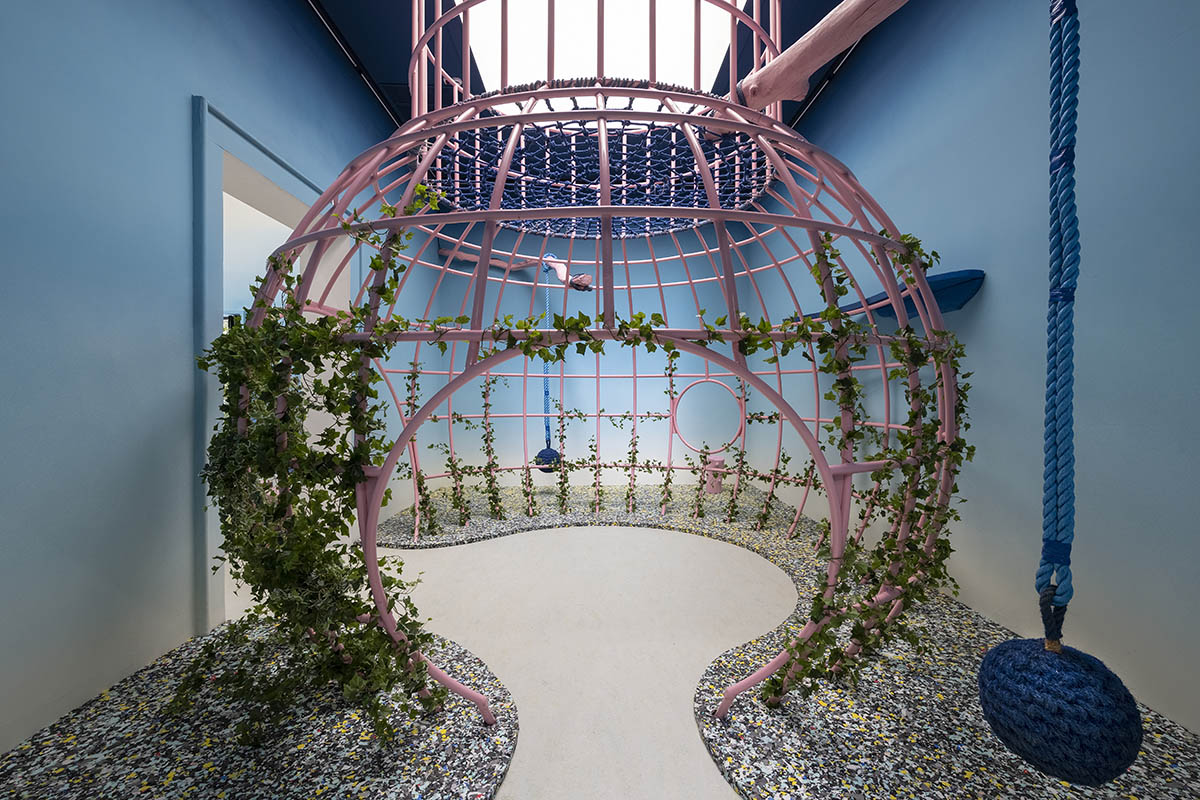
The British Pavilion brings a new light into the design of public spaces, seeking for alternative models on how public spaces can be improved and reconsidered to benefit the wider community - is being presented at the 2021 Venice Architecture Biennale which opens on May 22 in Venice, Italy.
Themed as The Garden of Privatised Delights and curated by Manijeh Verghese and Madeleine Kessler of Unscene Architecture, the exhibition is set as a response to privately-owned public space in cities across the UK.

The aim of the exhibition is to challenge "the polarisation of private and public organisations", and instead it poses solutions on how they might work together to improve use of, access to and ownership of public spaces.
"In the spirit of Bosch’s triptych, the exhibition explores the UK’s privatised public space as a non-binary issue," stated the curatorial team.
"As Bosch explored the middle ground of Earth between the extremes of Heaven and Hell, the curators suggest privatised public space also sits between two extremes: the utopia of common land before the Enclosures Act of the 18th century and the dystopia of total privatisation."
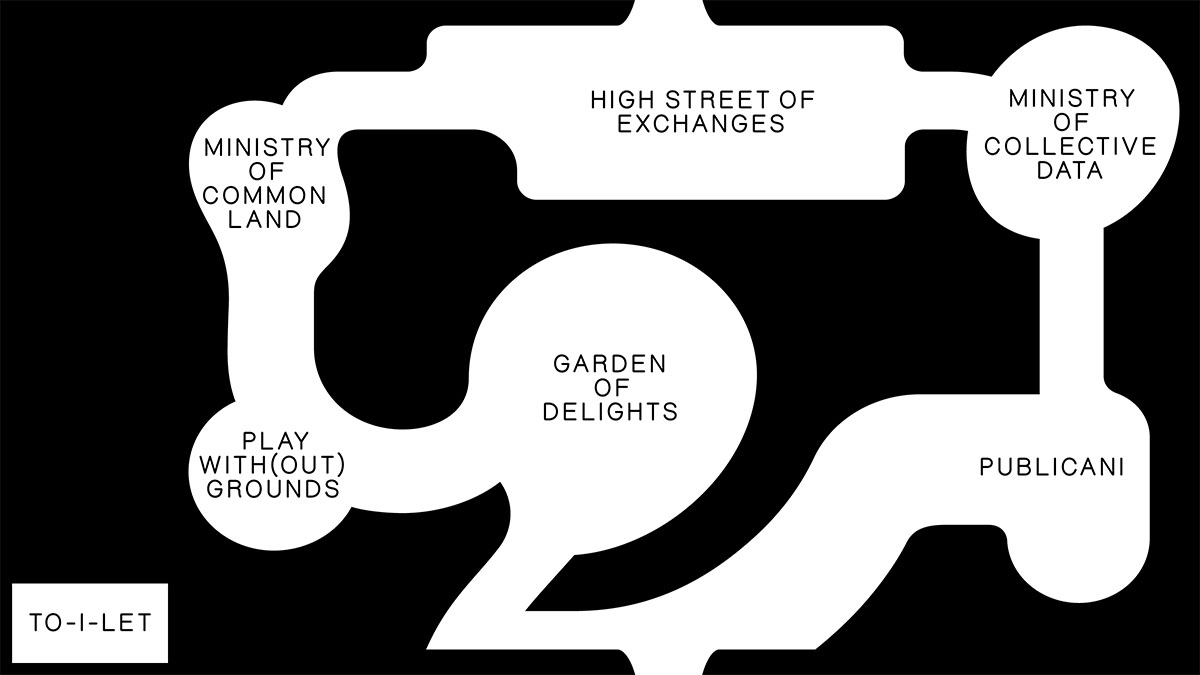
Inside of the British Pavilion is divided into six separate rooms that are transformed into seven privatised public spaces and have been reimagined as inclusive, immersive experiences.
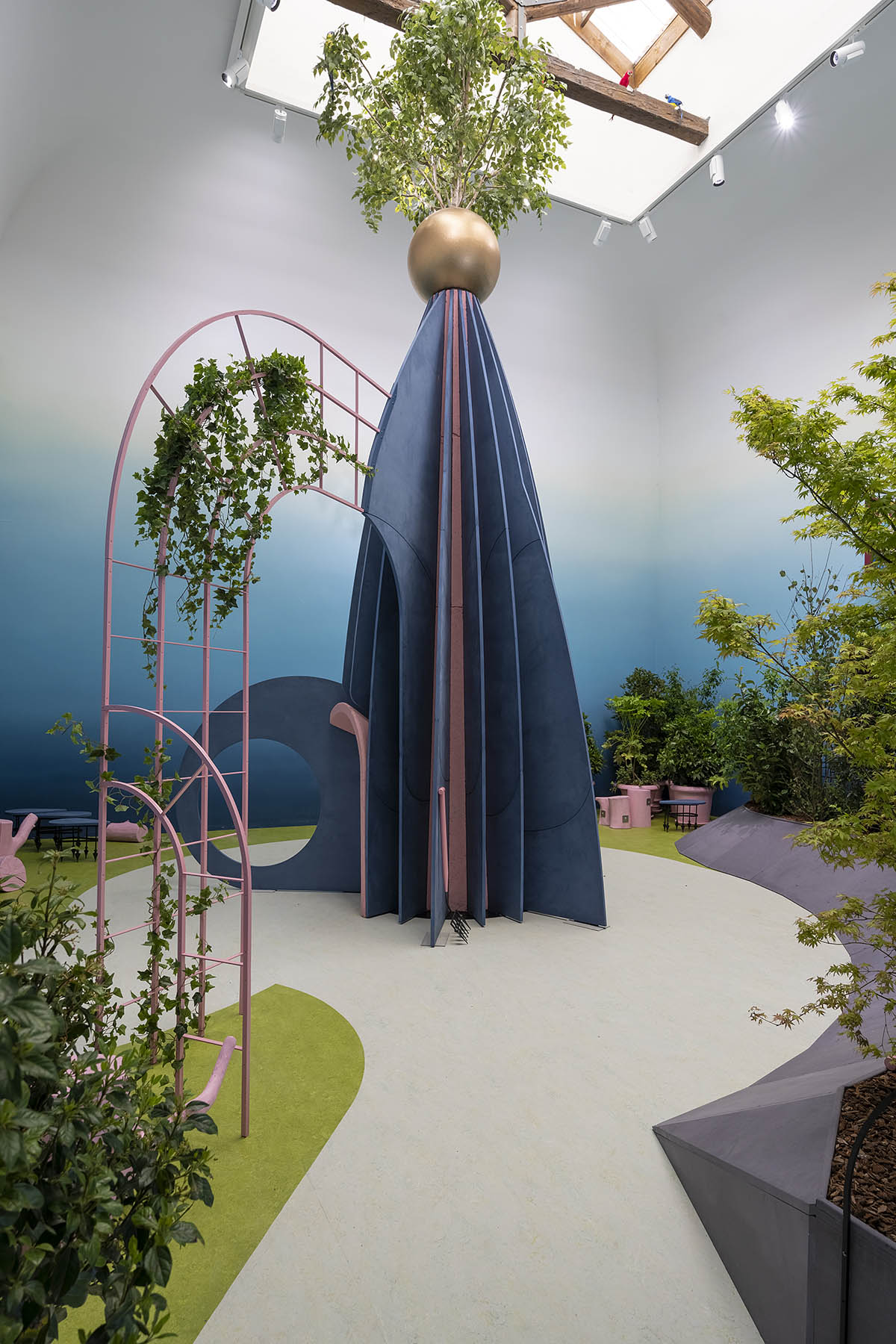
The theme elaborates familiar UK public spaces, which are increasingly under threat, the exhibition encompasses these examples as the youth centre, the high street and the local pub, which sit alongside the traditionally inaccessible private garden square.
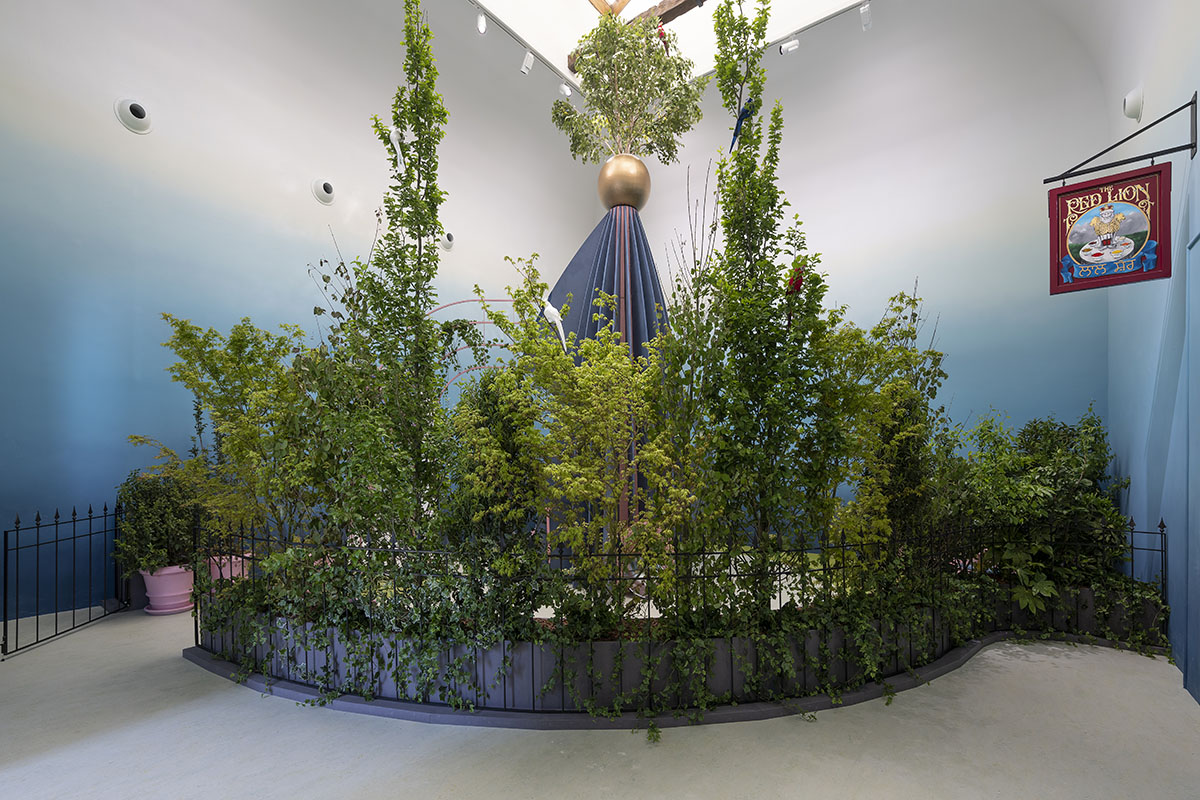
All are overlaid with proposals for how they can be reprogrammed and revitalised.
Two proposed new ministries suggest a bottom-up approach to conversations around ownership, of land and facial recognition data, while a private toilet in the pavilion’s basement highlights issues surrounding the most basic of public services.
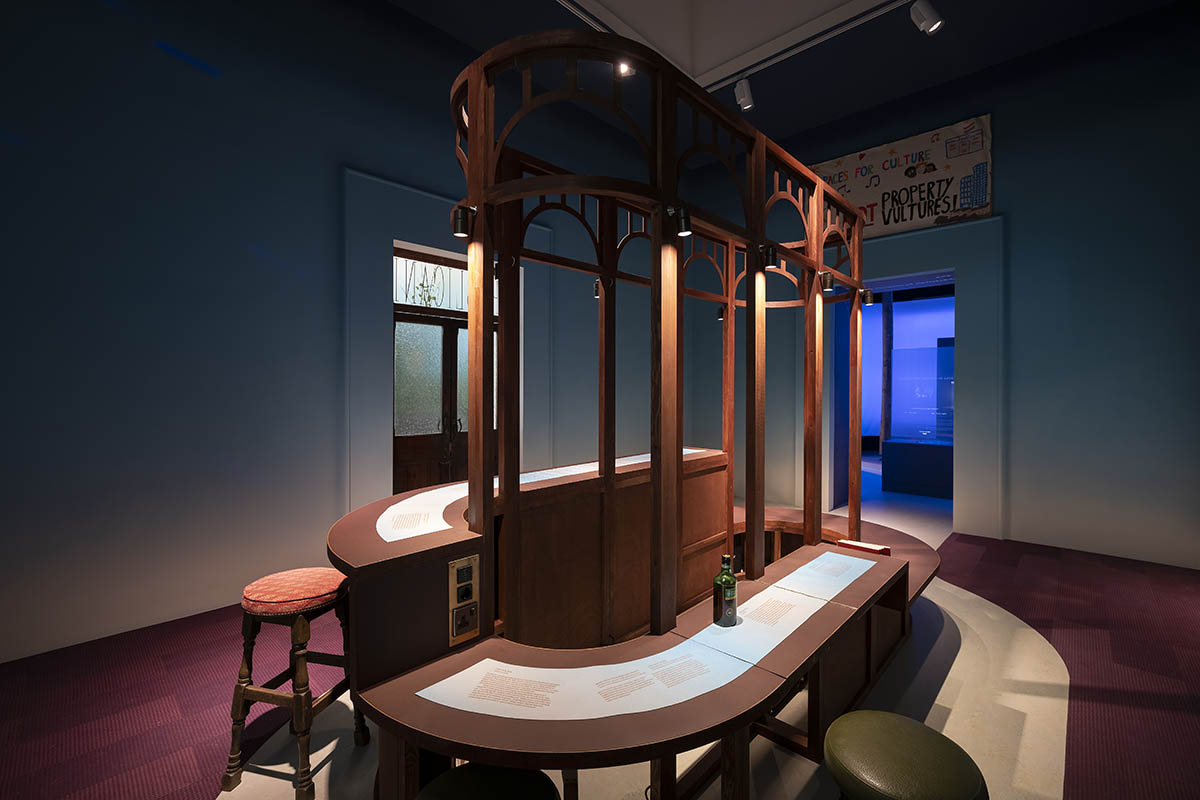
With the exhibition theme, Verghese and Kessler seek to ensure a range of voices - from young people to politicians - are heard.
At once playful and provocative, familiar yet strange, each experience suggests new models for privatised public spaces, prompting visitors to question, debate, and proactively engage with each.
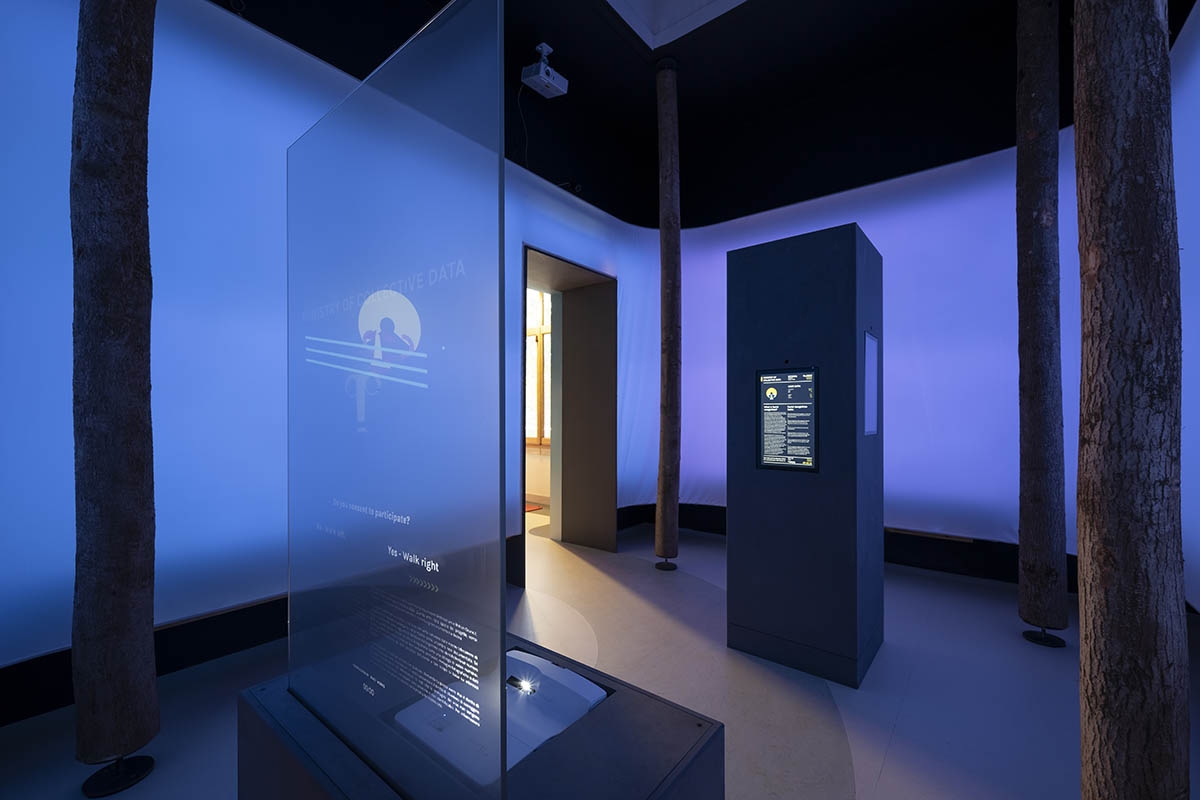
"We are thrilled to finally be able to share The Garden of Privatised Delights at the British Pavilion in Venice. The events of the past year have further highlighted the importance of accessible public space," said Manijeh Verghese and Madeleine Kessler.
"This has inspired us, and our amazing team of collaborators, to test collaborative processes and design strategies, in order to propose ways in which public space can become more inclusive."
"By encouraging everyone to be part of this complex conversation, privatised public spaces have the potential to become genuine Gardens of Delight at the heart of all our towns and cities," Verghese and Kessler added.
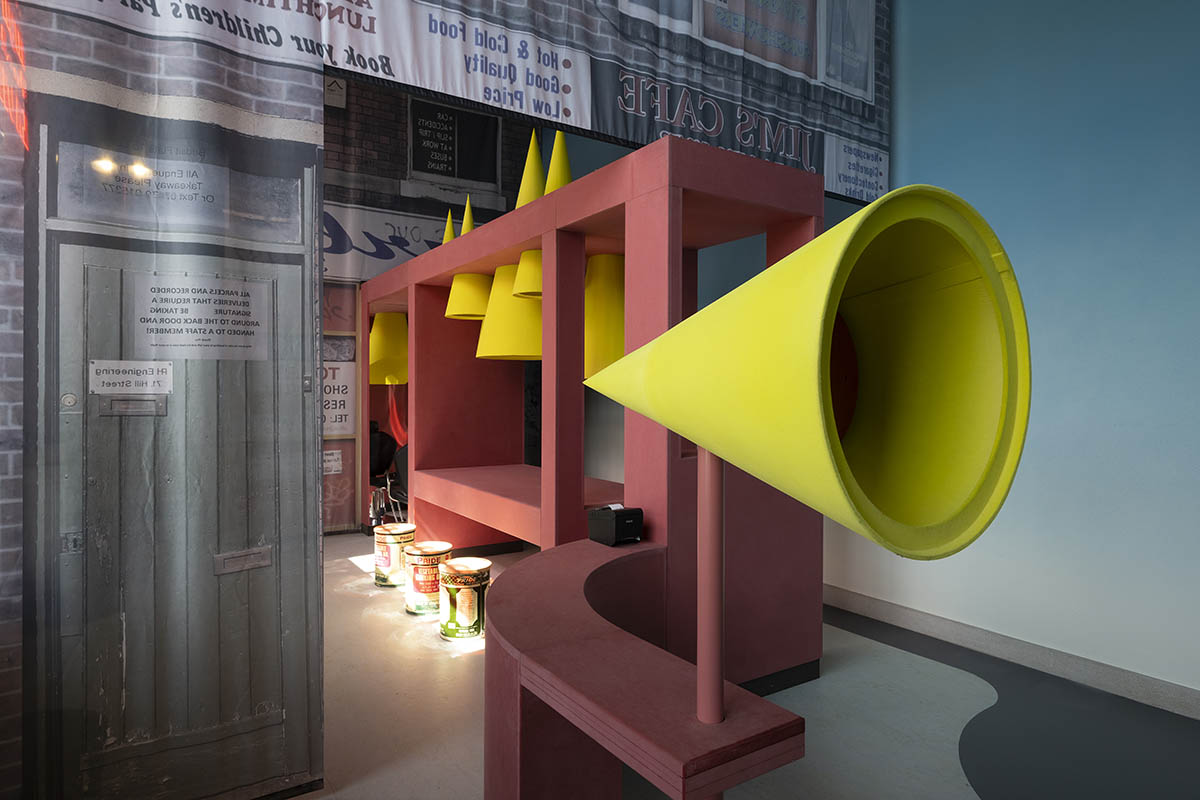
British Pavilion features public spaces as "simulated spaces"
Different than traditional exhibitions, with architecture represented by models and drawings, the Pavilion features a set of installations that are designed as "simulated spaces."
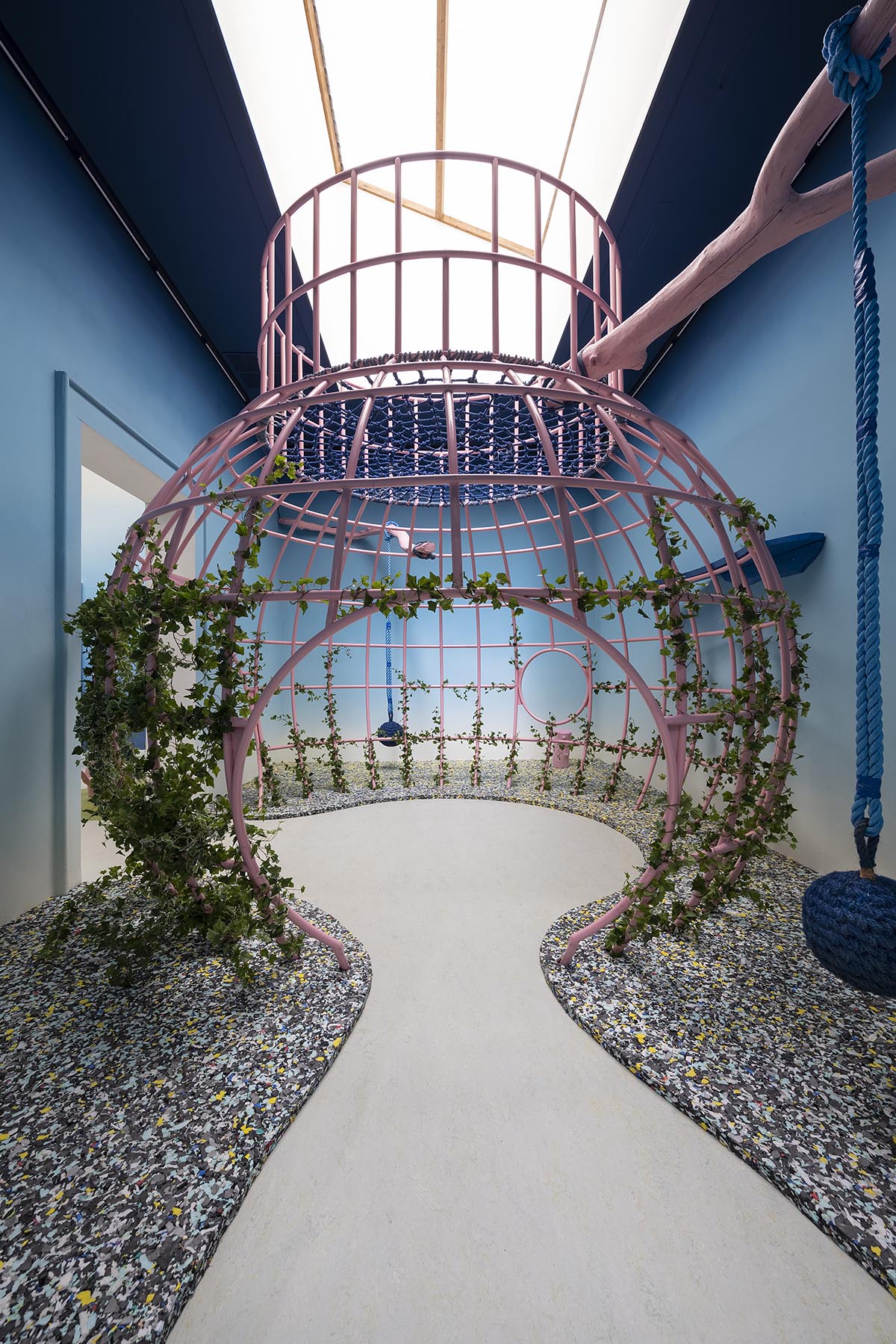
"This aims to actively encourage everyone - architects and non-architects alike - to engage and consider how public space design can be improved to benefit the wider community," continued the team.
"The experience, woven together by a continuous path as if through a typical British town or city, invites everyone to consider why all public spaces aren’t designed as gardens of delight?."
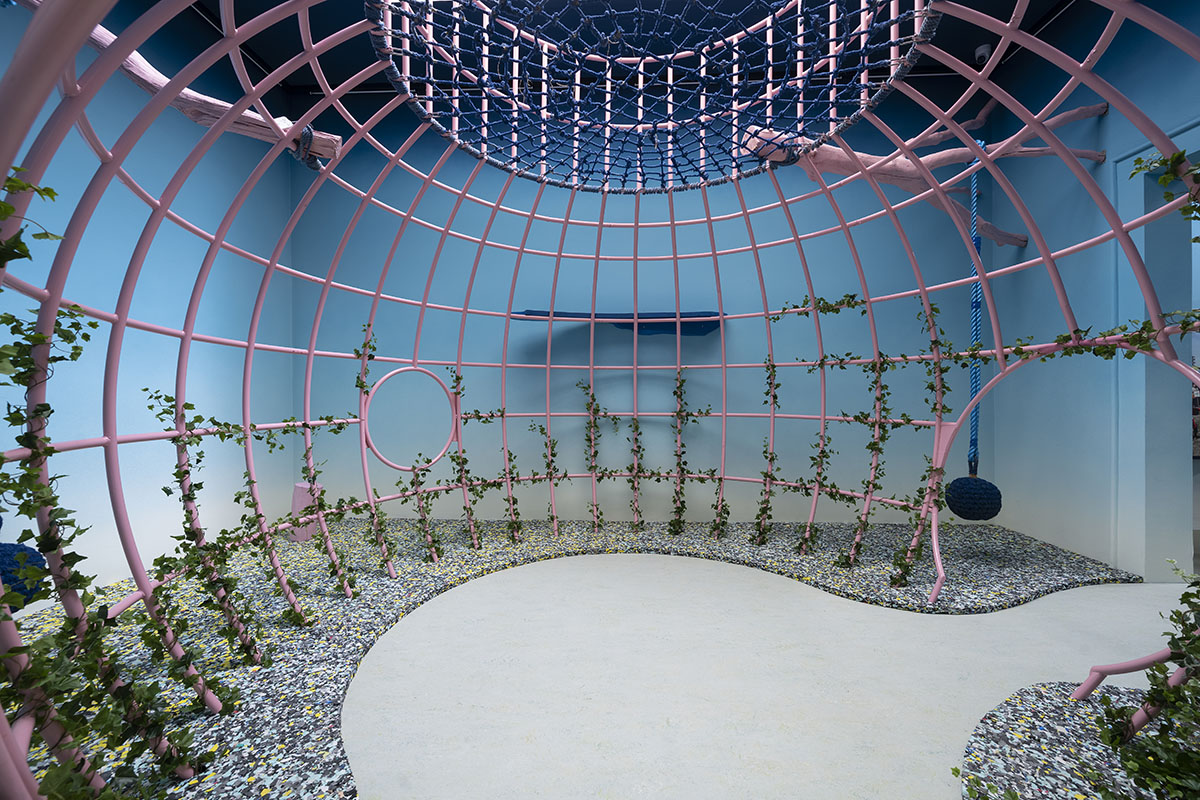
"The question is now more relevant than ever. In 2020 the Venice Architecture Biennale – one of the most prestigious architecture exhibitions in the world – was postponed due to the impact of Covid-19," stated the British Pavilion.
"Since then, topics explored within The Garden of Privatised Delights have taken on fresh urgency, further highlighting the importance of accessible public space for all."
"Themes such as the demise of the high street, a decline in social spaces for teenagers, and debates around facial recognition technology, have become more pertinent, given the business closures, suspension of schools and increase in video conferencing during the pandemic."

The "Garden of Privatised Delights" aims to generate a much wider conversation around privatised public space, and how increased inclusivity and consultation around its design can positively reframe the vital role public spaces play in towns and cities across the nation.
The British Pavilion is commissioned by the British Council, showing that the British Pavilion as a leading international platform to exchange innovation and ideas around contemporary art and architecture.
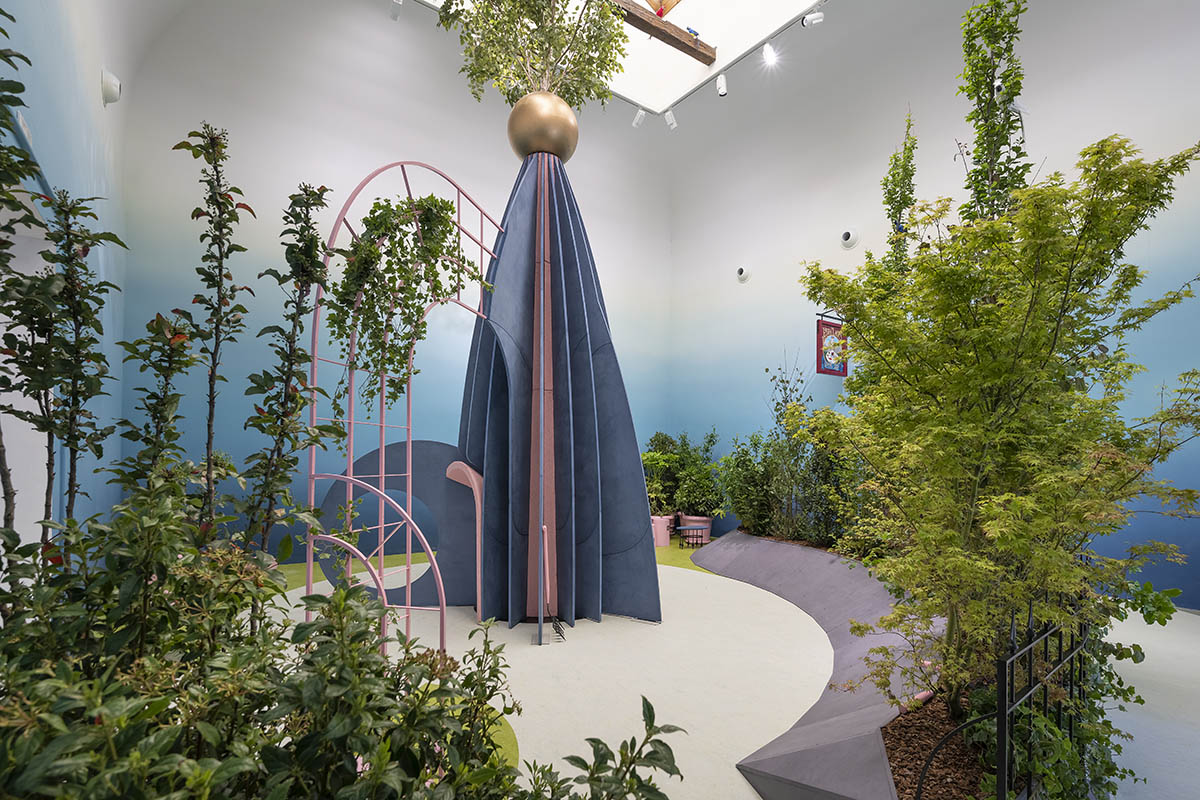
The rooms of the British Pavilion were designed by five additional teams of designers invited by the curators: The Decorators, Built Works, Studio Polpo, Public Works and vPPR. The sixth room was designed by Unscene Architecture.
The Decorators' room themed "Publicani" asks that could the pub be more than a place for drinking and become a versatile centre for civic action?, while Built Works' room, themed Ministry of Collective Data, asks that could we rethink facial recognition technology and free our collective data for public benefit?.
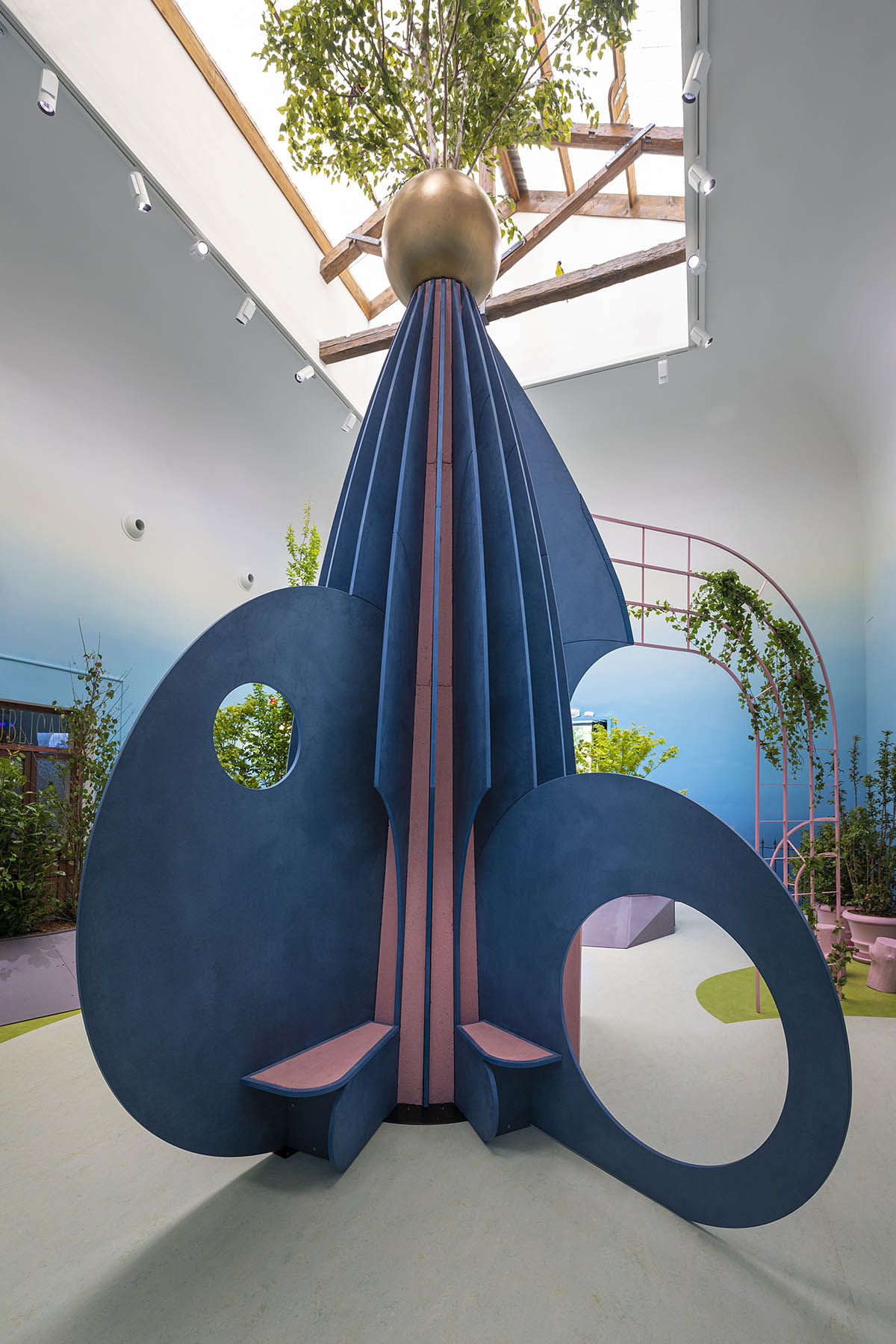
Studio Polpo's theme is "High Street of Exchanges" and asks: could the high street go beyond commercial interests to become a place of diverse social exchange?.
Public Works' theme in the room is "Ministry of Common Land" asks: could we use citizen’s assemblies to develop new strategies for land ownership and use?, while vPPR's theme is "Play With(out) Grounds" and asks: can we design new spaces in the city for teenagers to occupy on their own terms?.
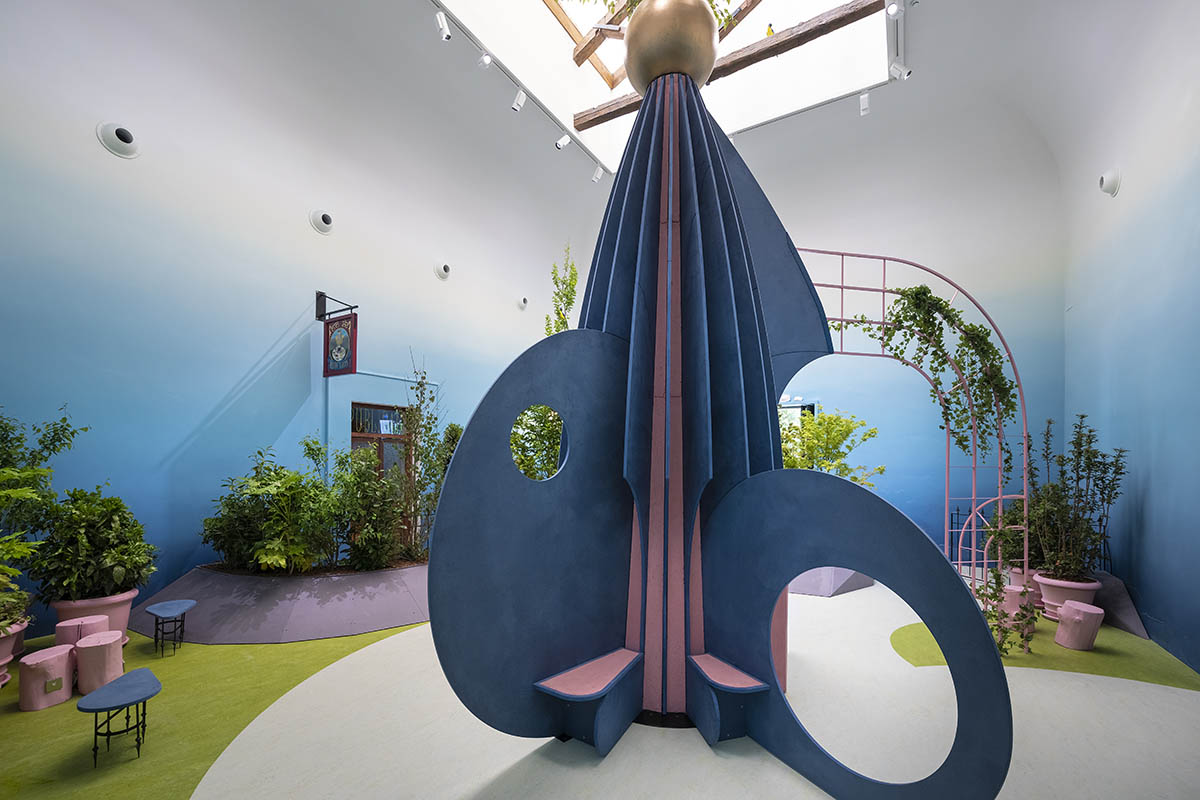
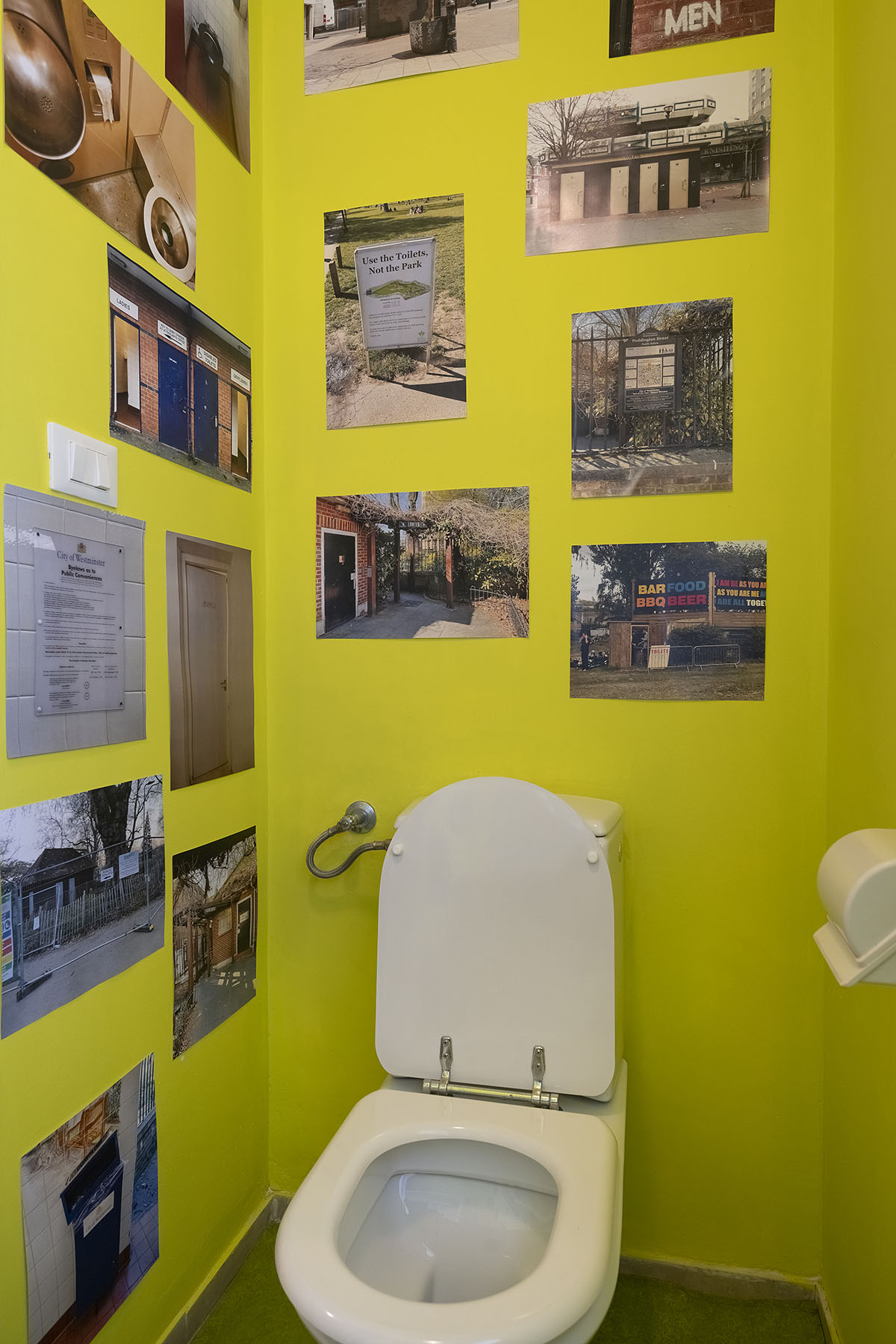
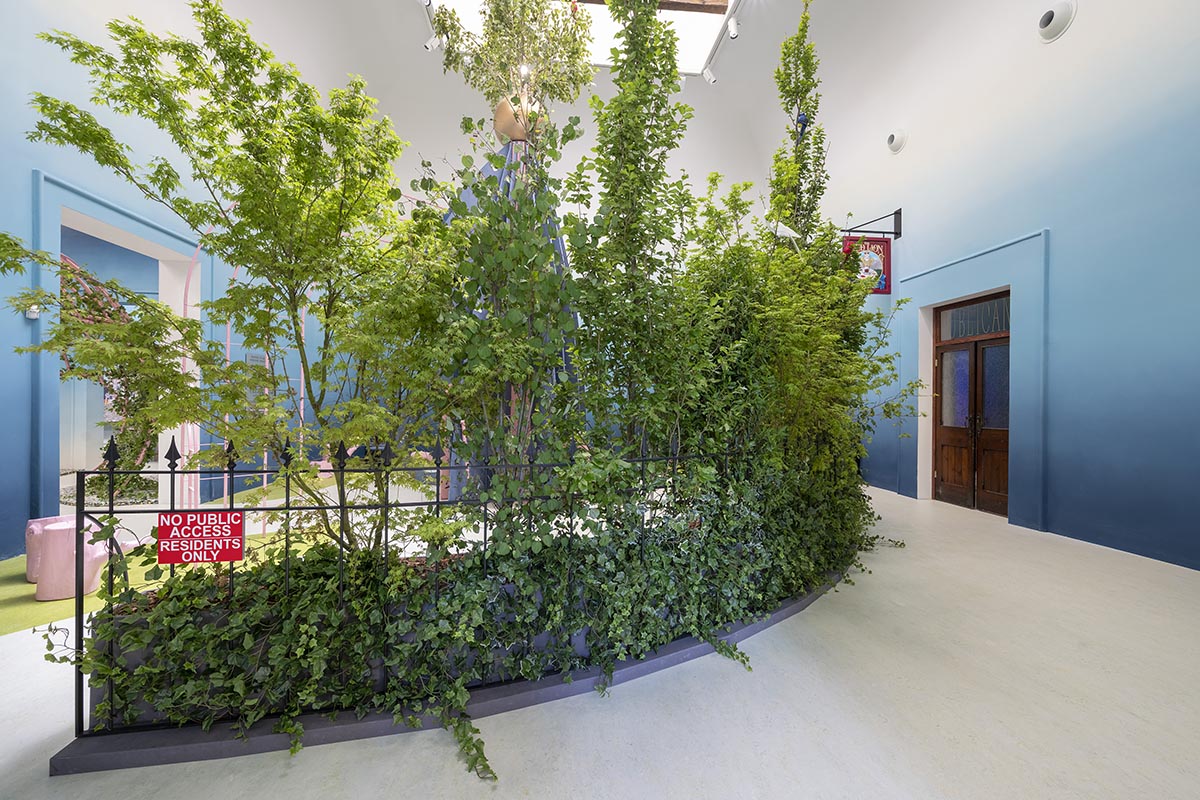

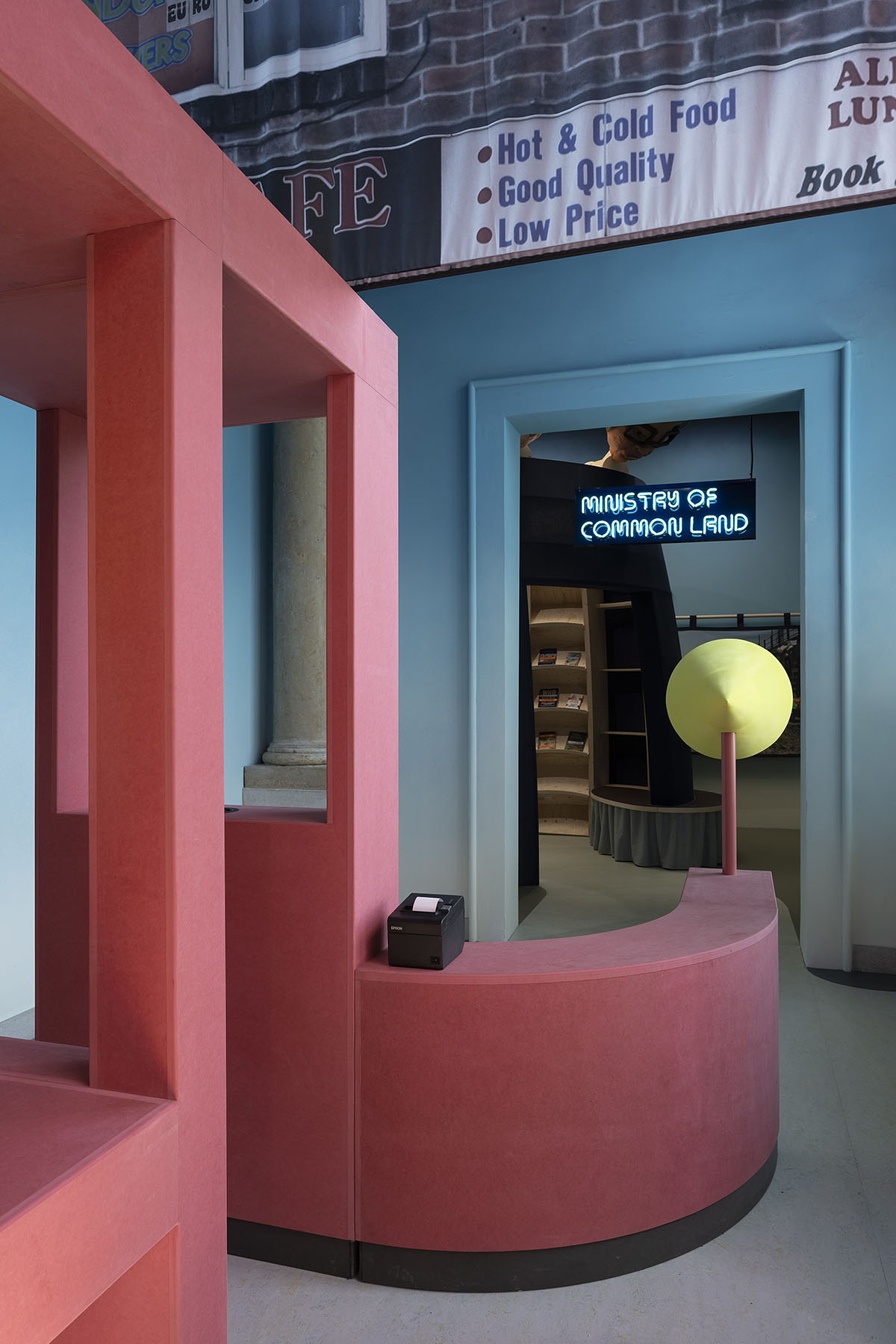

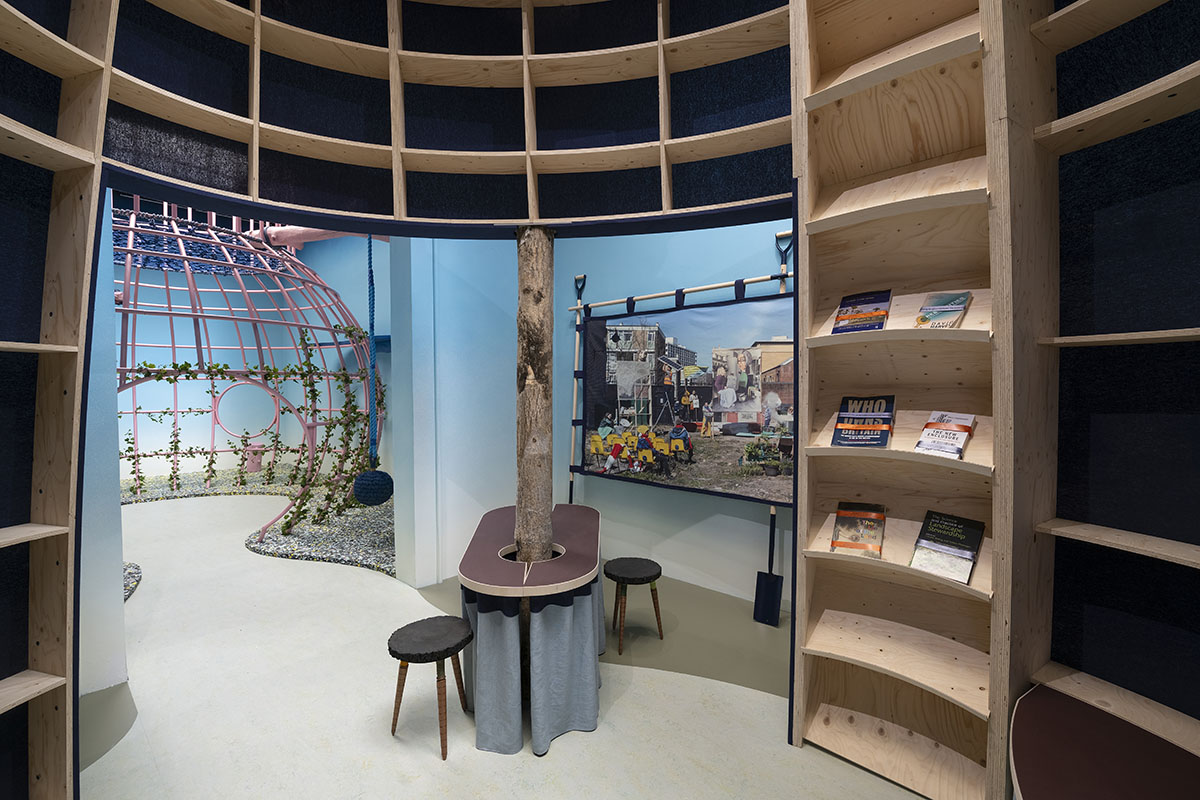

The 17th International Architecture Exhibition in Venice will open to the public on 22 May 2021. The exhibition will be on view till 21 November 2021.
This year’s architecture biennale is themed as How will we live together? by the curator Hashim Sarkis, the theme explores a widening context that helps architects to "imagine spaces in which we can generously live together".
All images © Cristiano Corte, courtesy of the British Council.
> via British Council
